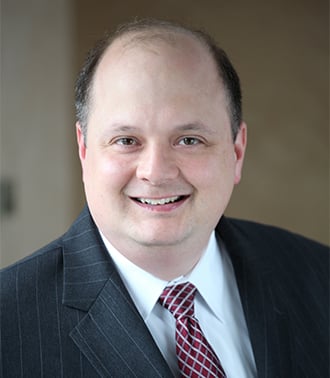FTC Brings Green Coffee Antioxidant Weight-Loss Claims to a Grinding Halt
Seller Beware: Consumer Protection Insights for Industry
In June of 2014, Dr. Oz was questioned at a Congressional hearing about his endorsement of green coffee extract, among other products, as a miracle weight-loss supplement. While Dr. Oz stood by his personal recommendation regarding green coffee extract, he acknowledged that green coffee extract, as well as other products he had endorsed, do not have the "scientific muster" necessary for their benefits to be presented as fact. The hearing drew more attention to the issue of whether companies are touting the benefits of their diet and weight-loss products without sufficient scientific support.
The FTC has been actively engaged in policing health and fitness claims, including claims about diet and weight loss supplements. Applied Food Sciences, Inc. (AFS) manufactures Green Coffee Antioxident (GCA), the key ingredient in the Pure Green Coffee product Dr. Oz hailed on his TV show. (That product was the subject of a separate FTC complaint against various manufacturers and retailers of consumer products that utilize GCA, which we blogged about here). AFS has entered into a settlement with the FTC in connection with the FTC's allegations that the study on which AFS based its weight-loss claims "either was never conducted or suffers from flaws so severe that no competent and reliable conclusions can be drawn from it."
The complaint alleged that AFS paid researchers in Bangalore, India, to conduct a clinical trial in order to determine whether GCA is an effective weight-loss tool. According to the FTC, the principal researcher altered weight measurements, lost track of which subjects were taking GCA versus a placebo, and repeatedly changed the length of the trial. The FTC alleged that AFS received numerous conflicting sets of data from the researchers before hiring two professors at the University of Scranton to rewrite the study for publication, and that the professors never reviewed the raw data. Moreover, the final report failed to explain why subjects lost the most weight while taking neither GCA or a placebo. The FTC alleged that AFS had made unsubstantiated claims and falsely represented that they had been proven by a clinical study, and also alleged that AFS had provided its customers, the manufacturers and retailers of the end products sold to consumers, with the "means and instrumentalities" to commit deceptive acts and practices against consumers by giving its customers the flawed study to rely upon.
The FTC settlement requires that AFS pay $3.5 million dollars to the FTC. The settlement also requires that AFS provide to the FTC the names and contact information of all of the customers to whom AFS has sold or attempted to sell GCA. AFS must also send a notice to each of those customers within thirty days notifying them of the FTC's claims and the settlement.
While the conduct of the study in this matter may be an extreme example, retailers and manufacturers of consumer products should be on the lookout for signs that their substantiation might not be reliable, whether they commission a study themselves or receive substantiation information from their suppliers. The FTC may hold companies accountable in either scenario.
© Arnold & Porter Kaye Scholer LLP 2014 All Rights Reserved. This blog post is intended to be a general summary of the law and does not constitute legal advice. You should consult with counsel to determine applicable legal requirements in a specific fact situation.

